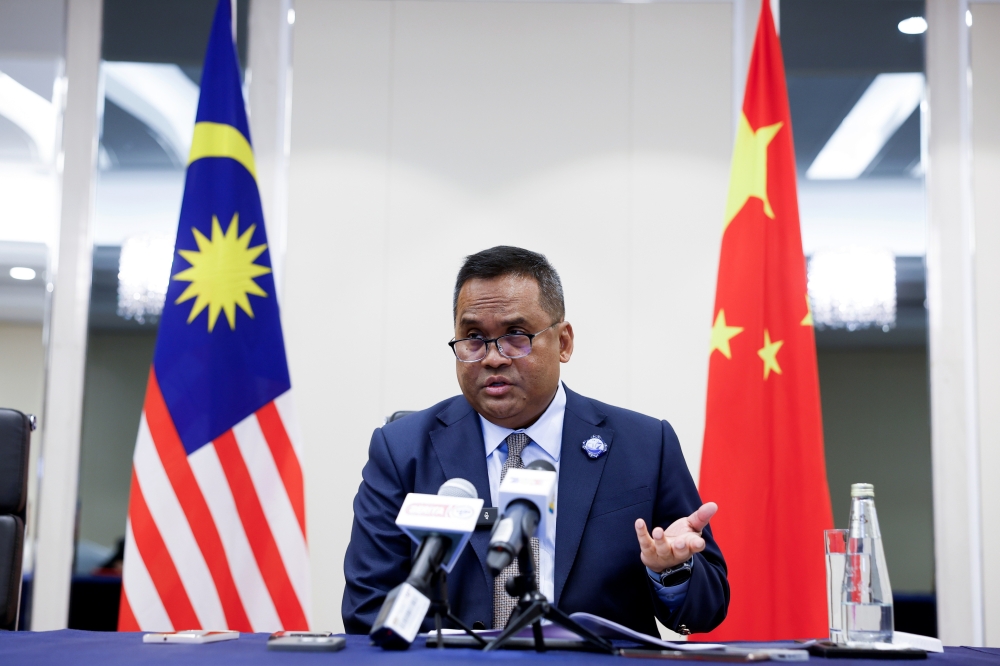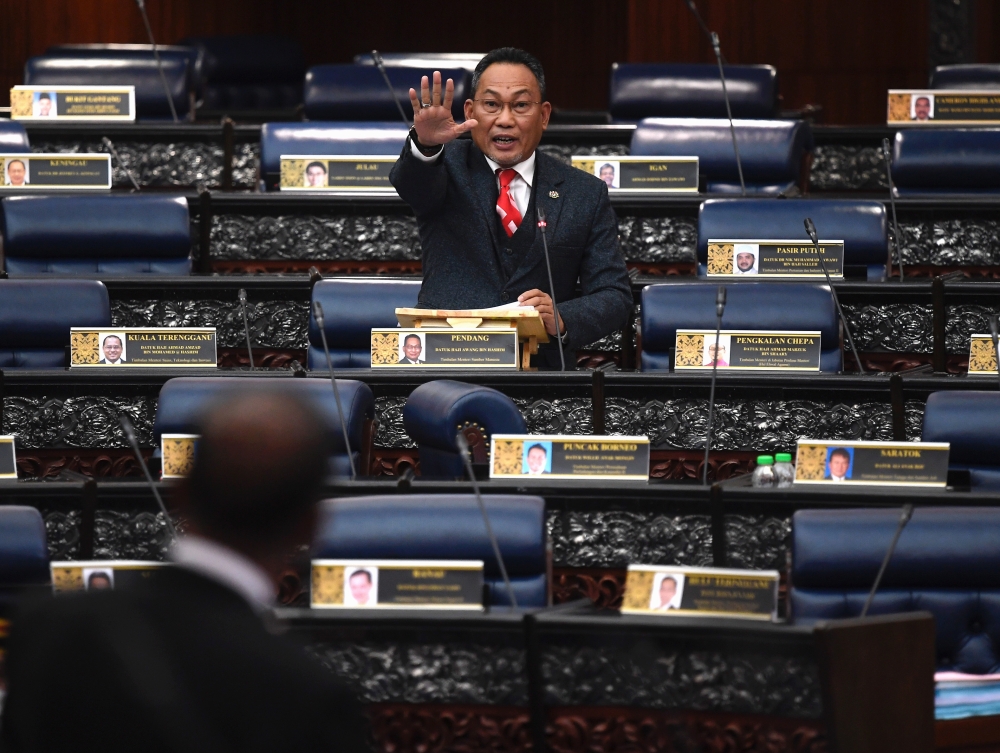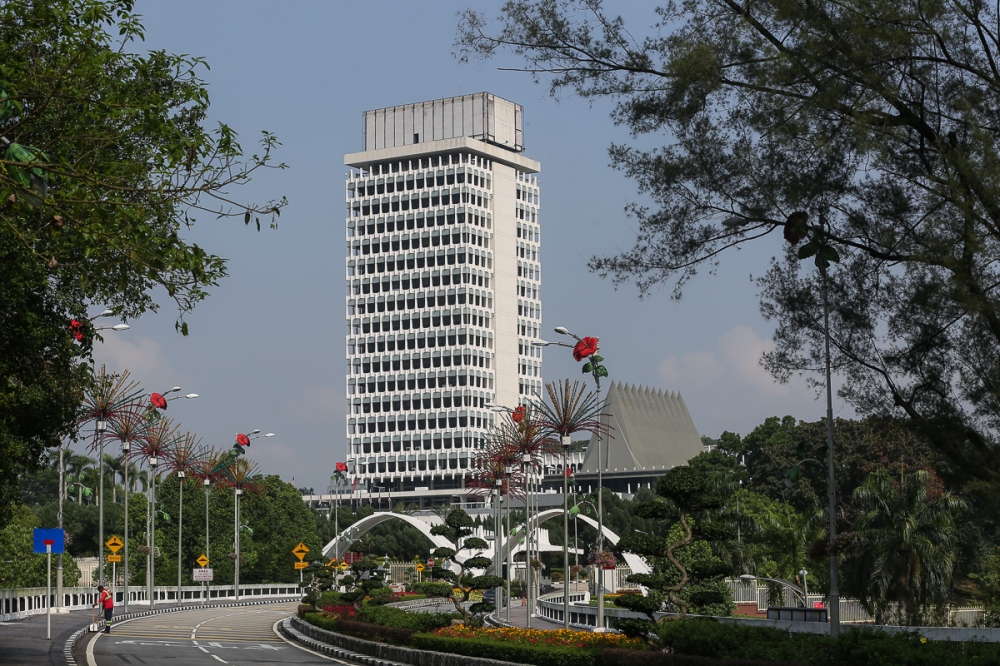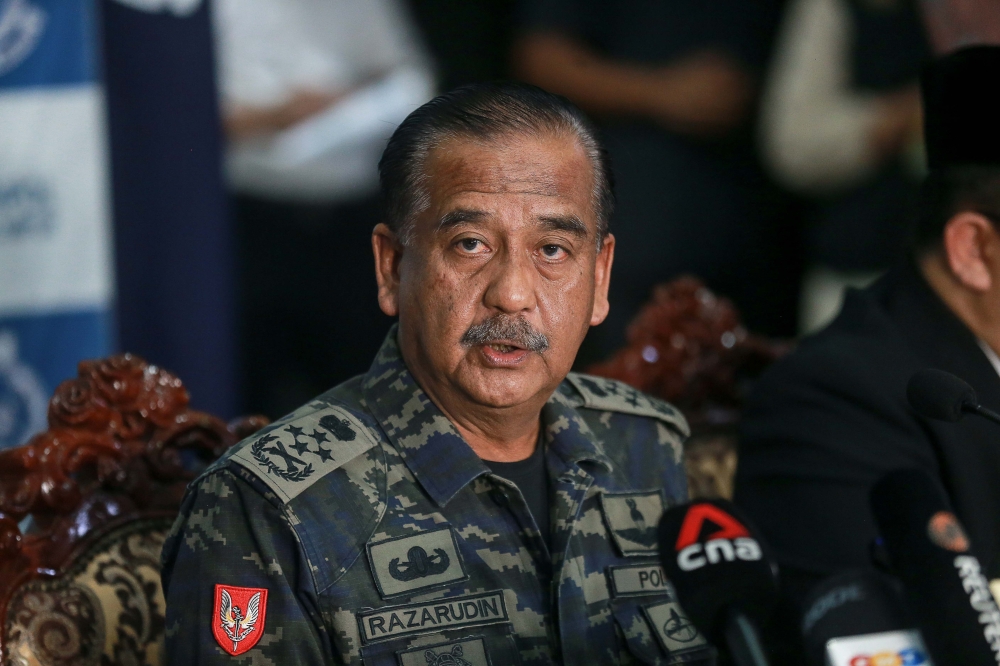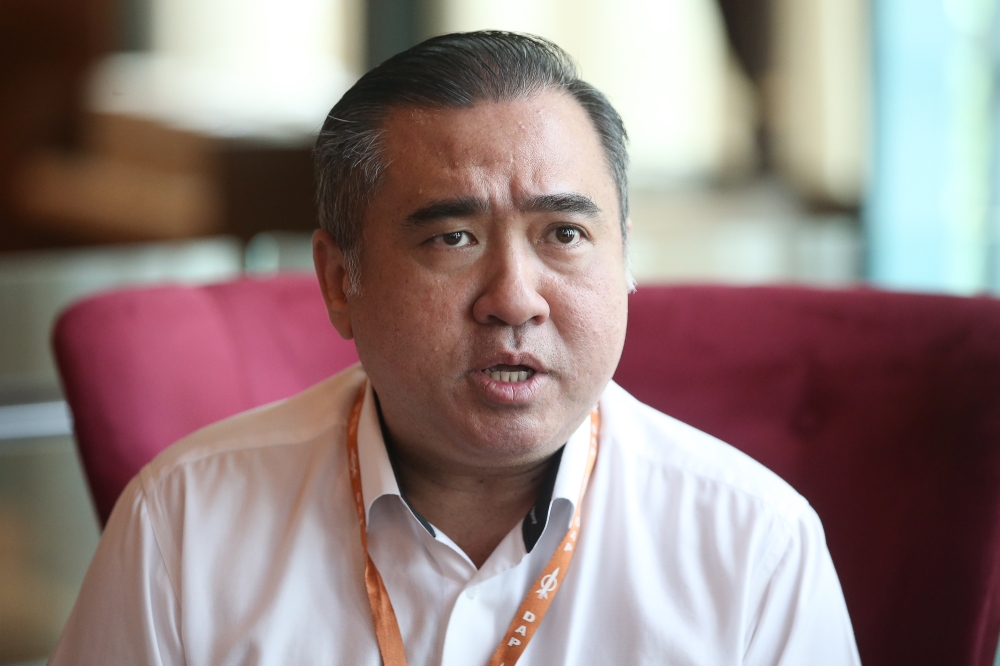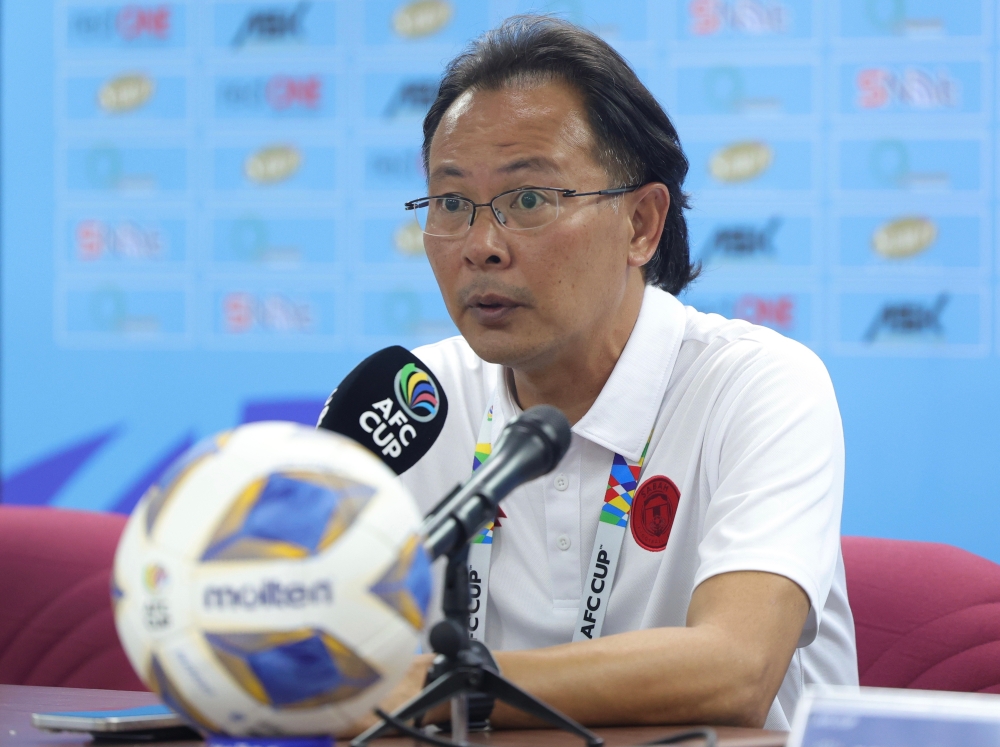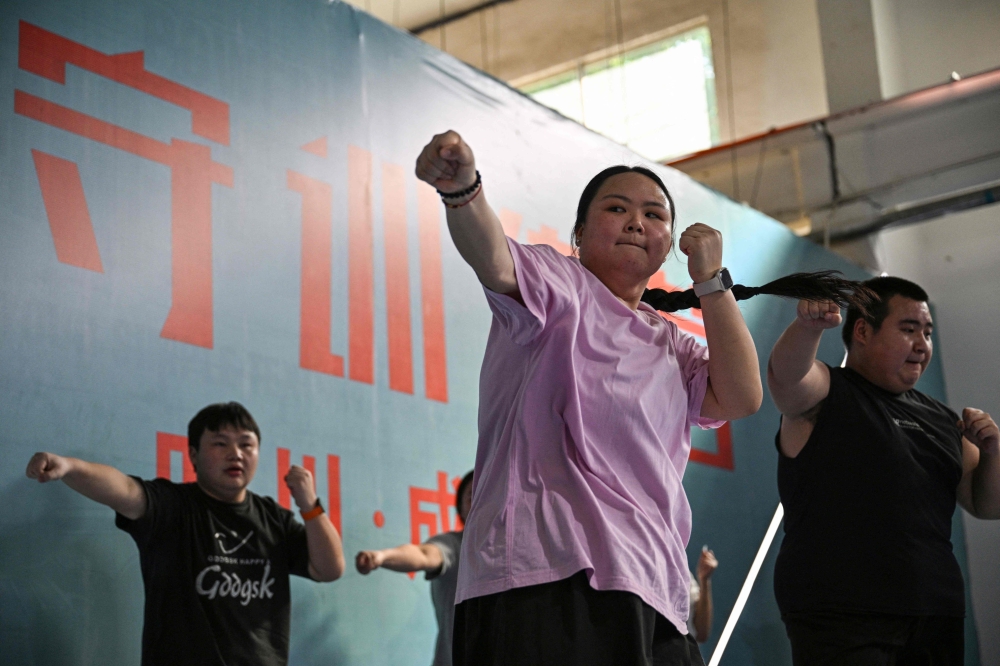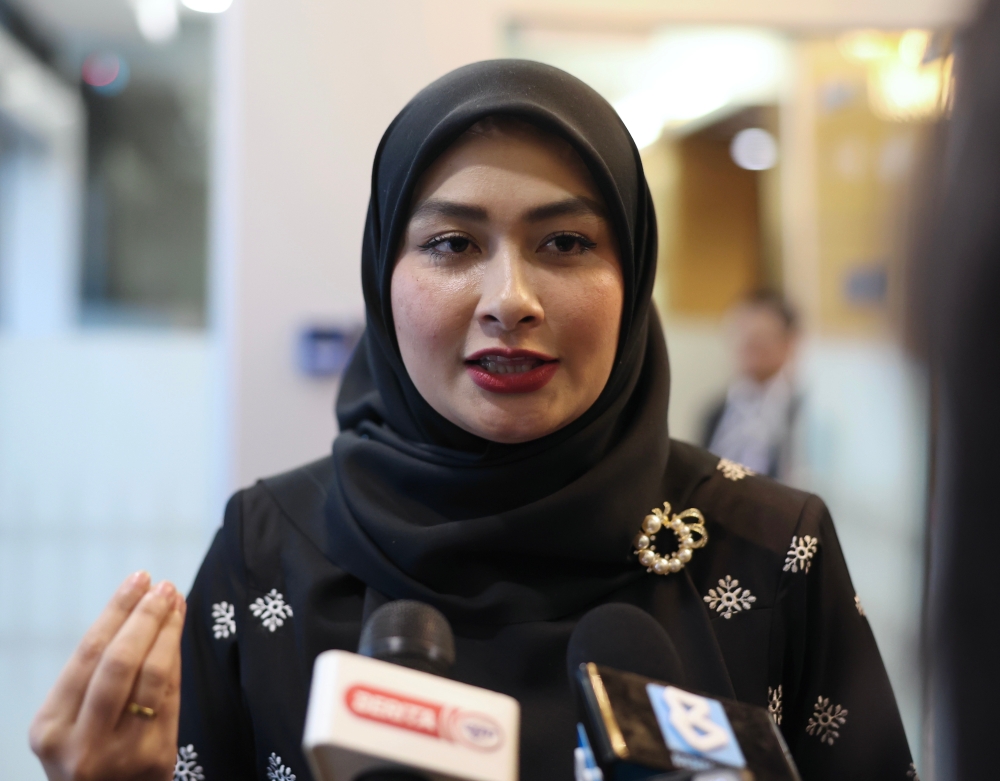KUALA LUMPUR, July 30 — Malaysia is a progressive country with an estimated population of 32.8 million in 2018, of which 16.7 million (51.6 per cent) were male.
The male population of those between 15 and 64 years increased from 69.6 per cent in 2017 to 69.7 per cent in 2018.
Since independence, there have been marked improvements in sanitation, delivery of clean water, vaccination coverage, effective prevention and control of communicable diseases that contributed to an increase in life expectancy.
Despite this progress, men are still experiencing shorter life expectancy compared to women.
The life expectancy of Malaysian men at birth was 58.7 years in 1960 compared with 60.3 years for women, a gap of 1.6 years (DOSM, 2016).
However, 57 years later, in 2017, even though this life expectancy increased to 72.7 years compared with 77.3 years for women, there is an even wider gap of 4.6 years (DOSM 2016).
The Malaysian Burden of Disease study in 2008 showed that the total years of life lost (YLL) in 2008 was 1.51 million in which 0.92 million (60.7 per cent) were among males.
Almost three quarter (68 per cent) of the burden of premature deaths resulted from (NCDs), followed by communicable diseases (20 per cent) and injury (12 per cent).
Among the top three leading causes of YLL were ischaemic heart disease (17.1 per cent), stroke (9.6 per cent) and road traffic injuries (8.3 per cent).
Based on the latest Malaysian National Cancer Registry Report 2012-2016, colorectal cancer was the most common cancer among males, accounting for 14.8 per cent of the total incidence of cancer.
This was followed by lung cancer (13.2 per cent) and prostate cancer (7.7 per cent). Many of these cancers have been strongly associated with smoking.
NCDs are escalating at an alarming rate creating a significant burden on health systems and a growing economic burden on the country’s economies.
Their common modifying risk factors are well documented, such as physical inactivity, obesity, tobacco use, harmful use of alcohol and unhealthy diets. Unfortunately, many of us are either ignorant or lack the willpower to change for the better.
Reducing risky lifestyle behaviours among men can play a crucial role in mitigating the incidence and impact of these NCDs.
Prevention of reckless and dangerous driving is also one of the multi-approach strategies toward preventing road traffic accidents.
Bottom-line, prevention of NCDs or even premature deaths depends on awareness, attitude and willpower of the individual.
Despite equal access and opportunity to healthcare and health services, data showed that there was a difference in health-seeking behaviour between genders.
Male attributes such as independence, assertiveness, risk-taking, a sense of invulnerability and ability to withstand pain may have contributed to their exposure to various health and disease risk factors.
The low percentage of health screening uptake among the health clinics attendees in the Health Ministry, of which only 4.7 per cent of men were screened in 2018 compared to 5.8 per cent women who were screened.
This opportunistic health screening which has been in place since 2009 may reflect the poor health seeking behaviour among men.
One of the factors contributing to this poor health-seeking behaviour is the male sense of invulnerability.
The identification and quantification of the magnitude of men’s health quandaries are essential in order to develop intervention programmes.
The Health Ministry has always emphasised equitable and universal health services.
Optimising men’s health is often laced with many challenges ahead, hence, enhancing men’s awareness and knowledge about health are ineffective to alter behaviours.
Therefore, one of the most critical steps is ensuring the healthcare services to be responsive to gender-based needs.
A paradigm shift is necessary for managing men’s health concerns — from treating a specific issue to a holistic approach, which encompasses male psychological, social and physical health.
As healthcare providers, it is important to realise that while equal opportunities are provided for men, tackling the other related issues such as perception, behaviours and beliefs involving men’s health often require a more serious consideration.
Thus, it is timely that an organised and a structured policy through the preparation of the National Men’s Health Action Plan (2018-2023), based on a male-friendly approach to healthcare delivery to address these challenges.
This action plan is aimed at ensuring equality in health services provided to men.
The service approach for all ages or “life-course health” that has been enacted in the Seventh Malaysia Plan in enhancing Primary Health Services is integrated within this National Men’s Health Action Plan so that an expansion of the scope of health promotion, prevention, treatment and rehabilitation services targeted for men could be implemented in the health facilities and the community.
It is hoped that this plan of action will help the Health Ministry to plan for health services for men and empowering them to be more aware of and responsible for their own health.
For those interested in the field of men’s health, the “Men’s Health World Congress” will be held at the Borneo Convention Centre in Sarawak from October 7 to 9, 2021.
The conference will offer an opportunity to expand or update on all aspects of men’s health, and interact with the world’s key opinion leaders in this rapidly developing field of men’s health.
For more information about the conference, click here.
* Dr Zakiah Mohd Said is an accomplished Public Health Physician and currently heads the Women’s and Men’s health programme in the Health Ministry. She has more than 10 years of experience in public health programme specifically in family health. Furthermore, she has extensive experience in formulating and evaluating policies pertaining to primary health care and marginalised health services as well as men’s and women’s health-related programmes. She also plays a crucial role in translating the Men’s Health Policy into the establishment of the National Men’s Health Plan of Action, Malaysia (2018-2023). Currently, she is in the midst of exploring the possibilities of approaching men’s health agenda via the strategies that are already in place for women’s health. As cancer is also a priority area for the Women’s Health Programme, Dr Zakiah is also the head of the women cancer prevention and screening programme (cervical and breast cancer) for the country.




